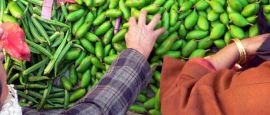Money & duty free for Myanmar
Exchange rates:
KyatC$1 = K1029.13
€1 = K1435.69
£1 = K1709.98
US$1 = K1380.5
Currency & Money
Kyat (MMK; symbol K) = 100 pyas. Notes are in denominations of K 20,000, 10,000, 5,000, K1,000, 500, 200, 100, 50, 20, 10, 5 and 1. Notes below K50 are very uncommon in daily transactions due to their low value. Coins exist in denominations of K100, 50, 10, 5 and 1, but they are rarely used in everyday commerce.
Myanmar is largely a cash-based society, and credit cards are only accepted at major hotels, international restaurants, and select shops in cities like Yangon and Mandalay. Visa is more commonly used than Mastercard. Due to ongoing disruptions to banking services, travellers should be prepared to pay in cash for most purchases, especially in smaller towns and rural areas.
ATMs are available in most cities and larger towns, but only a limited number accept international cards, and they dispense kyat only. Travellers should be aware that ATMs typically charge high fees, offer unfavourable exchange rates, have withdrawal limits, and may occasionally be out of service. It is advisable to carry sufficient cash as a backup.
There are no legal restrictions on the amount of foreign currency you can bring into Myanmar, but amounts over US$10,000 (or equivalent) must be declared upon arrival. Exporting kyat is not allowed, and any unspent local currency should be converted before departure.
Currency exchange is best done at official money changers, banks, or authorised counters at airports and hotels. US dollars are the easiest foreign currency to exchange, but only clean, undamaged notes are accepted. Also, exchange counters may refuse US dollars with the letters AB and CB at the start of the serial number (top left-hand corner of the note). Other currencies such as euros and Singapore dollars may also be exchanged at select locations, though rates can vary.
Myanmar duty free
The following goods may be brought into Myanmar without incurring customs duty:
• 400 cigarettes, or 50 cigars, or 250g of tobacco.
• Up to 2L of alcoholic beverages.
• Up to 150ml of perfume.
• Personal belongings with a total value of up to US$500.
You cannot import gold or gold bullion into Myanmar for trading purposes. Upon arrival, you must declare any valuable items, including gold, gems, and jewellery, to customs authorities.
Banned imports include counterfeit currency and goods, pornographic materials, narcotic drugs and psychotropic substances, playing cards, and goods bearing the emblem of the Buddha, pagodas, or the flag of Myanmar. Additionally, arms and ammunition, antiques and archaeologically valuable items, and endangered wildlife species are also prohibited. This list is not exhaustive. Travellers should consult the official customs website or contact the embassy or consulate near you for the most up-to-date information.
Banned exports include diamonds, crude oil, ivory, elephants, horses, rare animals, arms and ammunition, and antiques. This list is not exhaustive. Travellers should consult the official customs website or contact the embassy or consulate near you for the most up-to-date information.




 You know where
You know where